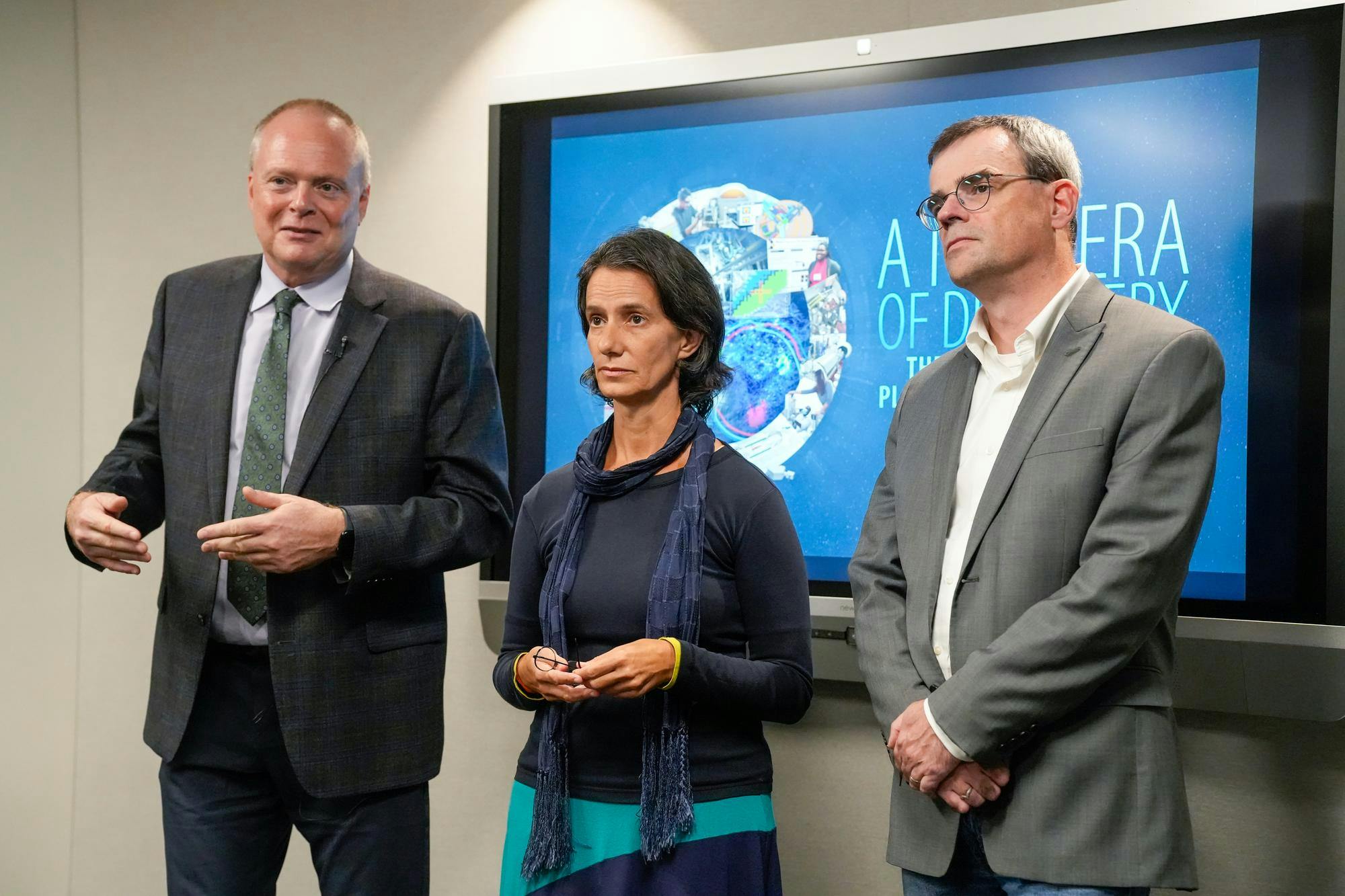The Facility for Rare Isotope Beams, or FRIB, will use the $115 million it received through a cooperative agreement with the U.S. Department of Energy Office of Science to fund the High Rigidity Spectrometer project. FRIB claims the project will “extend FRIB’s scientific reach to neutron-rich isotopes by up to a factor of more than 100.”
In layman’s terms, the High Rigidity Spectrometer, or HRS, will allow researchers to collect data on rare-isotope reactions that occur extremely fast. Isotopes are each of two or more unique forms of a particular element that have the same chemical makeup, but differ in atomic mass and nuclear structure. The formation of isotopes can occur in nature through the decay of a nuclei — but at FRIB, nuclei of a particular element are accelerated to a target where they shatter and form new isotopes.
Isotopes’ unique properties make them useful in many applications such as diagnostics, oil and gas exploration, basic research and national security, according to the U.S. Department of Energy Office of Science.
"Isotopes that FRIB is making travel at very high velocities of 50% the speed of light, and the HRS will allow us to use those isotopes as they are produced," HRS spokesman Remco Zegers said.
Zegers described the impact this technology will have on expanding’s FRIB’s research efforts.
“The (HRS) makes the experiments very efficient, so we get a much wider reach, and we can address science that is very exciting," Zegers said. "The most exciting science is the nuclei that are produced far from stability, and we are able to study those nuclei with the High Rigidity Spectrometer.”
Stability refers to the balance of protons and neutrons within a nucleus. Highly unstable isotopes have not been studied extensively up to this point, so the applications they may have remain to be seen.
The HRS was identified as a necessary instrument for the FRIB in the 2015 Long Range Plan for Nuclear Science, a document written by the Nuclear Science Advisory Committee, or NSAC.
The NSAC is a committee chartered under federal law that provides advice to the Department of Energy and the National Science Foundation on the national program for nuclear science research.
“Once every 10 years, the nation’s scientists make a plan to articulate opportunities (on) how to keep the nation a leader in the world in nuclear science, and FRIB emerged from this plan,” FRIB Laboratory Director Thomas Glasmacher said.
FRIB hosted an event on Oct. 6 to provide an update on the 2023 Long Range Plan for Nuclear Science, or LRP, which was announced on Oct. 4.
The plan recommends "capitalizing on the unique ways in which nuclear physics can advance discovery science and applications for society by investing in additional projects and new strategic opportunities.”
The plan also recommends investing in the HRS project, which is expected to have a user community of over 500 scientists. To complete this feat, the plan recommends raising graduate researchers' compensation to levels correspond with the cost of living.
However, professor in the Department of Physics & Astronomy and LRP writing group member Filomena Nunes said the LRP cannot ensure that MSU will raise compensation for graduate researchers.
“The LRP is a recommendation to the funding agencies to make that funding available," Nunes said. "So, the funding agencies, if they decide to pursue, will try to find the funds and then that creates pressure in the university to adjust their salaries. It is not that the LRP is speaking directly to the university, but it has influence in this indirect way.”
Support student media!
Please consider donating to The State News and help fund the future of journalism.
Discussion
Share and discuss “FRIB will put $115 million toward High Rigidity Spectrometer project” on social media.







